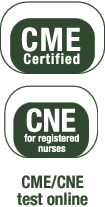
A few years ago, our ever-exploring CME group in Miami conducted a highly interesting education experiment. We gathered a dozen urologists, radiation oncologists and medical oncologists for a daylong roundtable audio recording on the management of prostate cancer. What made this event particularly interesting was that all 12 of these men had been previously diagnosed with the disease.
In their practices over the years, these physicians had treated many patients with prostate cancer, and the first message that came out of this discussion was that living through the diagnosis and therapy turned out to be far more challenging than they expected.
My most vivid memory of this amazing day was the story of a urologist from Nebraska. In practice for more than 30 years, this experienced clinician, who was quite familiar with the current prostate cancer database, became so convinced of his imminent death following the news that he had Gleason 5 disease in one core (95 percent cure rate) that he refused to purchase new clothes for more than six months.
What these physicians also learned is that for most of us, an internal courage switch comes on in these crises, and often the drive to get through the maelstrom revolves around concerns for others who depend on us, particularly our families.
Although the clinician “patients” with prostate cancer described here are unique in understanding their disease, they are in no way alone with regard to feelings, emotions and fears. As we have come to learn, cancer patients, regardless of their tumor type, are far more alike than we might expect.
The enclosed report describes the third phase of a fascinating project that our group began in 2004 to further build on our understanding of the cancer experience. For this unique endeavor, we focused on colorectal cancer and more specifically the important topic of adjuvant chemotherapy for this disease.
Adjuvant chemotherapy is a critical issue throughout cancer medicine because cases involving this treatment approach in breast, colorectal and lung cancer alone account for approximately one third of all medical oncology office visits.
For the first phase of this colorectal cancer project, we hosted approximately 100 survivors of the disease and their loved ones at a town meeting on adjuvant therapy in Houston. During the event, participants listened to presentations by clinical investigators and used interactive keypads and networked laptop computers to provide perspectives on the information they heard (Love 2005).
Based on the preliminary findings from the town meeting, we then produced a pilot audio education program and surveyed 150 more survivors for their thoughts on a number of key issues related to adjuvant therapy and their perceptions about the value and benefit of the audio program (Love 2006a).
Last year, the project shifted into high gear with the production of a five-hour audio patient education program on adjuvant treatment of colorectal cancer (delivered as a companion to this report) and a survey of 150 people who recently received adjuvant therapy for this disease.
The major survey findings are described in the report, and it would be fair to say that this work has received considerable attention. The results were first presented during a plenary session at the Gastrointestinal Cancers Symposium in Orlando in January 2007 (Love 2007c) and then again as a poster discussion at the June 2007 ASCO annual meeting in Chicago (Love 2007b). This work has also generated significant enthusiasm and interest among the lay and medical press and was featured in a prominent article in USA Today (Szabo 2007) and in a number of other publications.
The real value in completing this project was not just in the specific findings but that we were able to contribute to and continue what needs to be a major ongoing effort to ask patients about their experiences and perspectives. Oncology healthcare professionals must be constantly made aware of this valuable information so that they can properly address the needs and desires of their patients. The enclosed audio CD further describes this project and includes the related comments of NSABP Chair Dr Norman Wolmark, who was interviewed in Orlando after our initial presentation of the data.
For our next step in this compelling voyage, we hope to prospectively survey people about to undergo or in the midst of receiving adjuvant chemotherapy and those in the recovery process. We want not only to learn more about how to assist and support these patients in whatever way possible but also to better understand how we can more effectively incorporate these individuals into clinical trials. It is unfortunately clear that our current treatment tools for this disease are suboptimal, and we must find better answers quickly through research.
To this point, hundreds of patients and family members willingly contributed their time and effort to this compelling “research” project. We salute these participants and deeply appreciate their commitment to moving the field forward. They understood what many of us have come to realize — namely, that their stories, just like that of the urologist paralyzed by the fear of prostate cancer, need to be listened to and understood.
— Neil Love, MD
NLove@ResearchToPractice.com
June 10, 2007
| Table of Contents | Top of Page |

